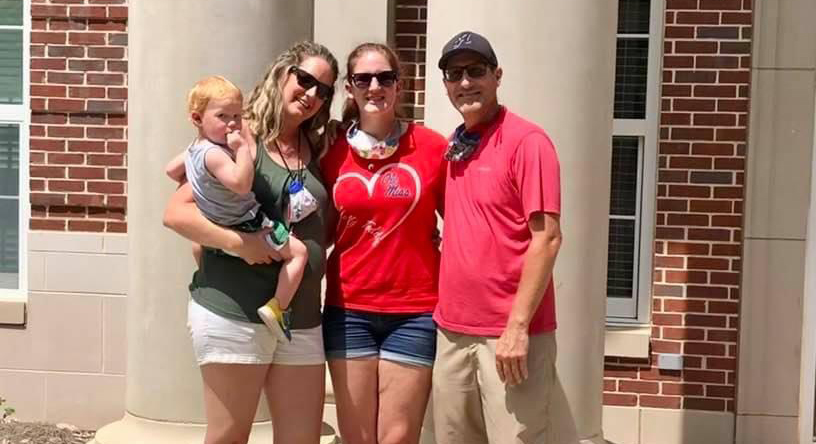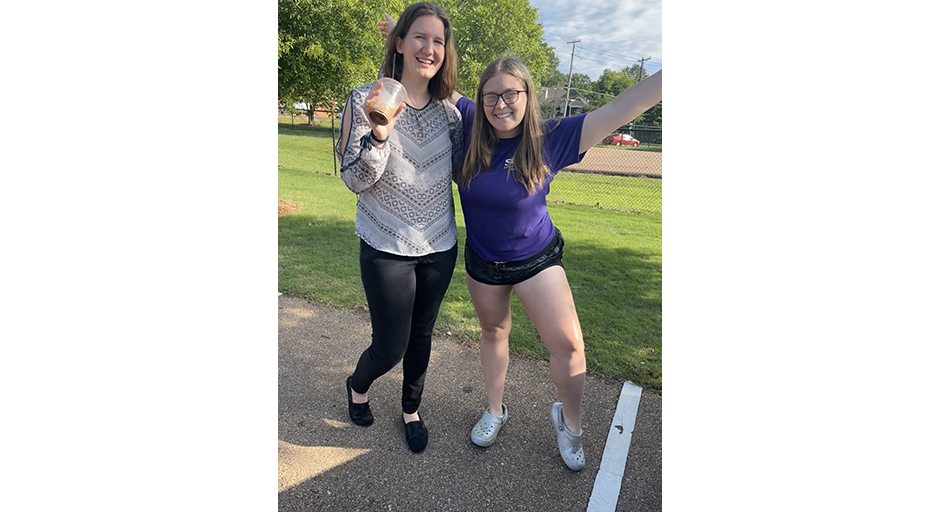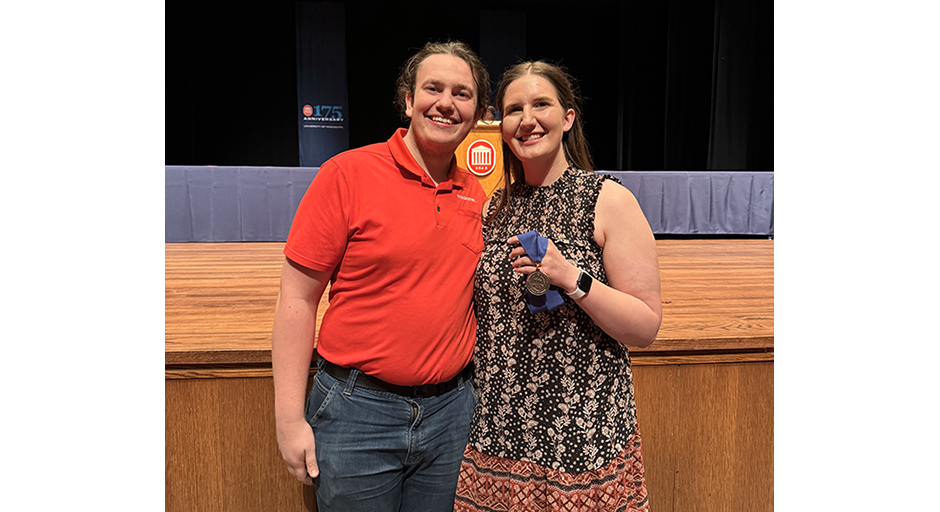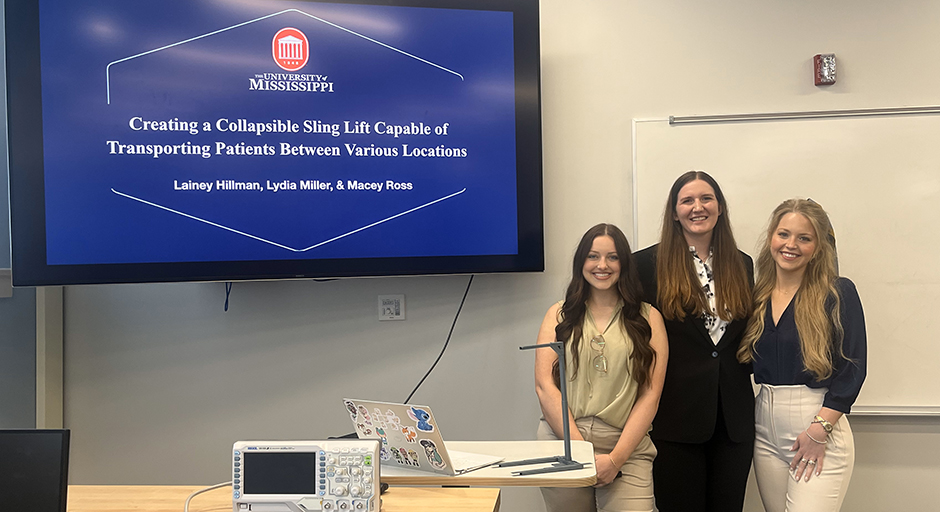JTC 24: A Tear of Fate
Lydia Miller's journey spans from the softball field to the realm of biomedical research
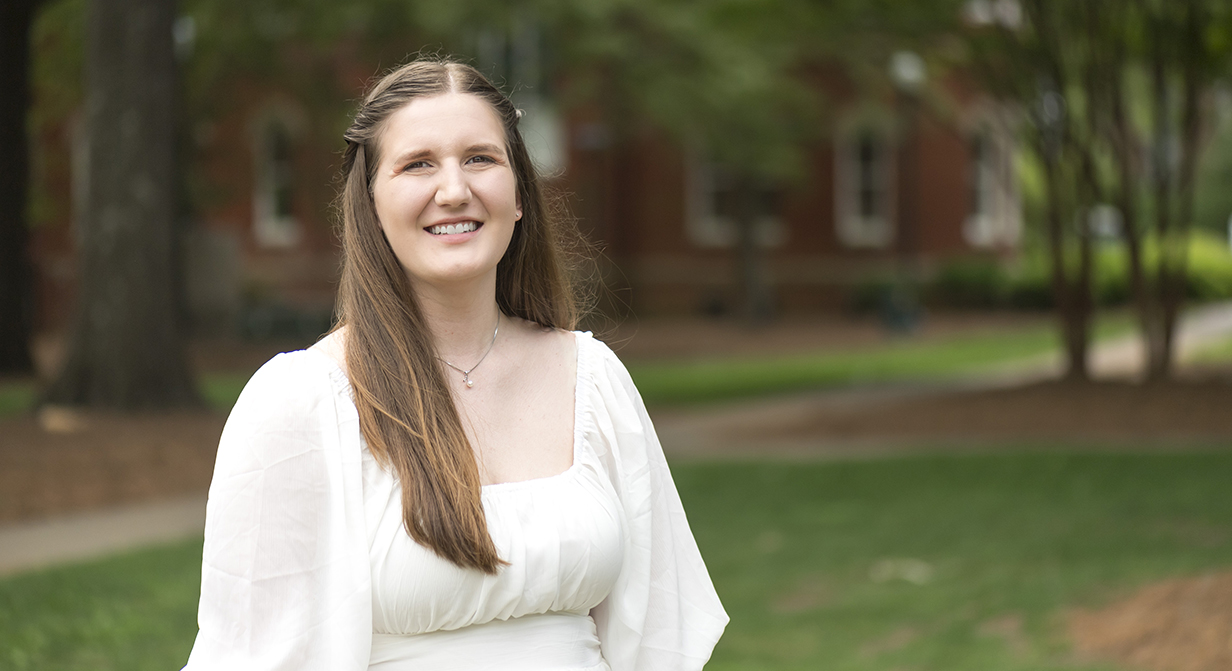
This story is part of the 2024 Journey to Commencement series, which celebrates the pinnacle of the academic year by highlighting University of Mississippi students and their outstanding academic and personal journeys from college student to college graduate.
Lydia Miller always imagined herself playing softball in college. The Harrisburg, Illinois, native was a multi-sport athlete at Harrisburg High School until a twist of fate changed her path – she tore her ACL, MCL and meniscus.
After that, Miller's plans to play college sports unraveled. While rehabilitating her injury, she missed the crucial softball recruiting season, and because of the serious nature of her injury, her performance never recovered to its original level.
This significant setback shifted her focus; she realized playing sports in college was no longer feasible, pushing her to reconsider her future. The path to becoming an athlete was closed, but in its place, a new interest in biomedical engineering began to emerge.
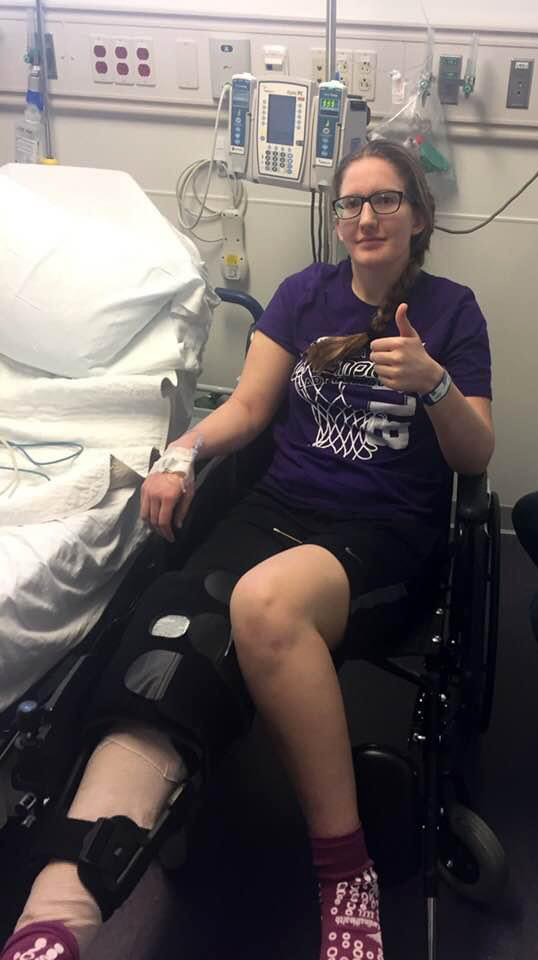
Lydia Miller recovers in her hospital room from ACL reconstruction surgery. Although the knee injury scuttled her dreams of playing collegiate softball, it put her on the road to a degree in biomedical engineering from UM. Submitted photo
Miller set out to find a college close to home with a good biomedical engineering program.
"I gave myself a five-hour radius from my home, and I found the University of Mississippi," Miller said. "It was simple from there."
The campus immediately felt right, and a spot in the Honors College, along with a generous academic merit scholarship, sweetened the deal.
At Ole Miss, Miller embraced every opportunity. She contributed to outreach with the Center for Mathematics and Science Education and joined mission trips to New Orleans with her campus ministry organization. Her musical talent shone as she played saxophone at the Sugar Bowl with the Pride of the South marching band.
Miller credits the university with opening many doors for her, certain that this unique blend of service, music and science wouldn't have been possible elsewhere.
She not only found her place on campus but also ventured into the world of research, joining Yi Hua's "Vision Laboratory." There, Hua, an assistant professor of biomedical engineering, saw Miller's potential and gave her the reins on significant projects.
Unlike the traditional route where undergraduates might shadow graduate students working in the lab, Miller herself managed various complex tasks, such as labeling blood vessels in the eye with fluorescent dyes, giving her invaluable hands-on experience.
"Typically, such a demanding project would be reserved for a graduate student," Hua said. "Lydia is not only advancing our understanding of biomedical engineering but is also growing immensely as a scholar and individual under the challenges of this high-caliber work."
The laboratory became a haven where Miller enjoyed the thrill of problem-solving.
Her success in the lab has made her future clear: she's aiming for a master's in biomedical engineering with a focus on the biomechanics of the eye. Her time at Ole Miss has set her on this path, where she'll build on what she's learned and work on making real-world contributions to medical technology.
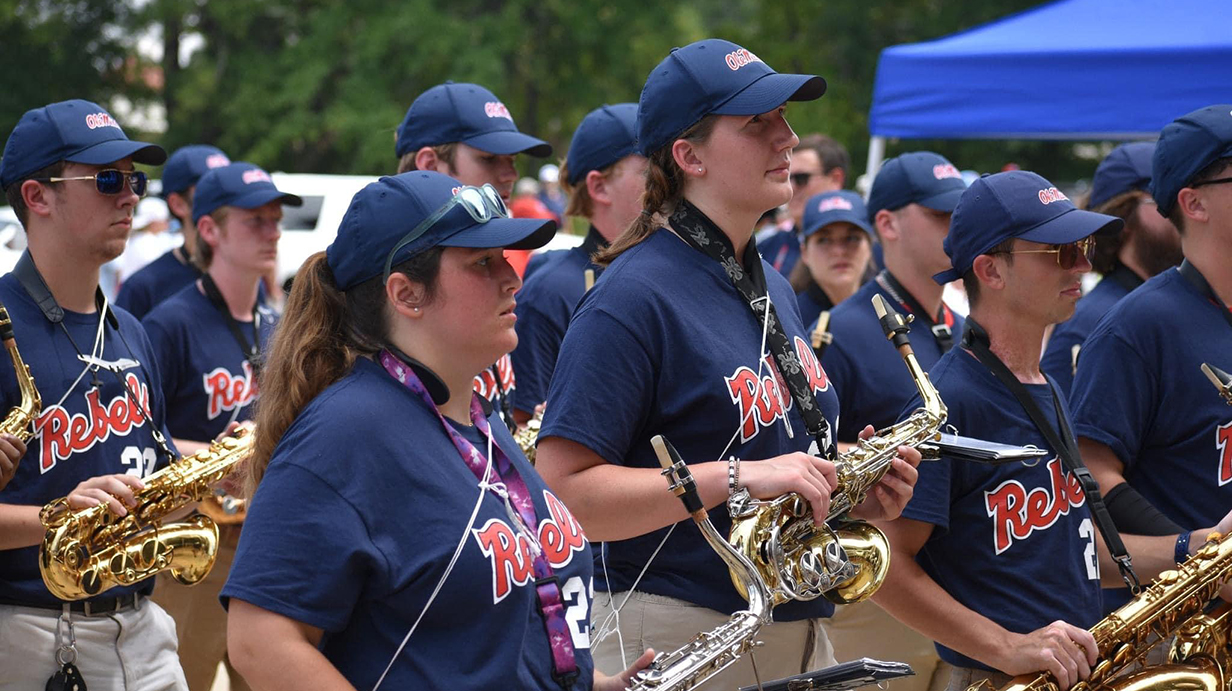
Lydia Miller (center right) marches in a parade with the Ole Miss Pride of the South marching band. Submitted photo
As Miller prepares to graduate with her bachelor's degree, she leaves with a sense of serendipity. Knee injuries such as the ones she suffered can be career-ending, but for Miller, they were paradoxically career-starting.
During her recovery, an offhand remark from her orthopedist about her new knee brace – that it served more as a placebo than a physical aid – changed everything. That interaction sparked a new thought: What if she could create a brace that genuinely supported healing?
This question steered her toward biomedical engineering, a discipline devoted to tangible improvements in health care through the design and creation of medical devices.
From the softball field to the realm of biomedical research, what seemed like an end was just a beginning. She graduates as a member of the Sally McDonnell Barksdale Honors College, a member of Phi Kappa Phi and a Taylor Medalist, all distinctions that might have eluded her if not for that pivotal high school injury.
"So many good things have happened," Miller said with a smile. "I don't think I would have had these experiences anywhere else."
By
Kayla VonBurg-King, School of Engineering
Campus
Published
May 02, 2024

